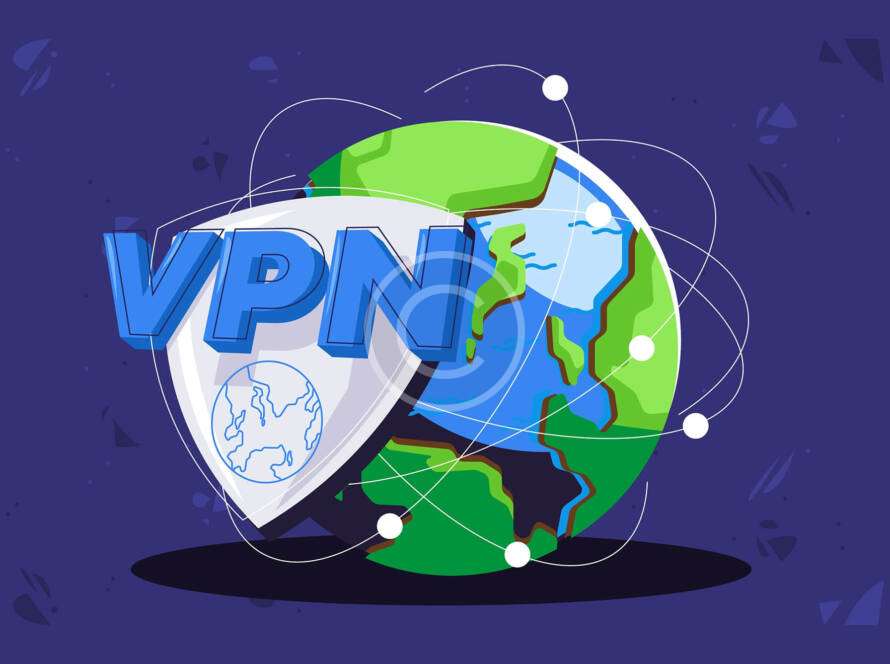In today’s digitally connected world, protecting your online privacy is more important than ever. As we navigate through the internet, our digital footprint—the trail of data we leave behind—becomes increasingly significant. One of the most effective tools for safeguarding this digital footprint is a Virtual Private Network, or VPN. This article delves into the importance of using a VPN, how it works, and the benefits it provides for enhancing your online security.
Understanding Digital Footprints
Every action you take online, from visiting websites to sending emails, contributes to your digital footprint. This footprint can be tracked and collected by various entities, including websites, advertisers, and even hackers. The data gathered can include your IP address, browsing history, location, and more. In an era where data breaches and privacy violations are becoming more common, protecting your digital footprint is essential to maintaining your privacy and security.

A Virtual Private Network (VPN) is a technology that creates a secure, encrypted connection between your device and the internet. When you use a VPN, your internet traffic is routed through a remote server, masking your IP address and encrypting your data. This process makes it significantly harder for third parties to track your online activities and steal your personal information.
How Does a VPN Work?
When you connect to the internet without a VPN, your data travels through your Internet Service Provider (ISP) to the websites you visit. This direct connection allows your ISP and other potential eavesdroppers to monitor and log your online activities. However, when you use a VPN, your data is first encrypted and then routed through a VPN server. This server acts as an intermediary between your device and the internet, effectively anonymizing your connection and protecting your data from prying eyes.
Benefits of Using a VPN
1. Enhanced Privacy and Anonymity
A VPN masks your IP address, making it difficult for websites, advertisers, and other third parties to track your online activities. This enhanced anonymity helps protect your personal information and browsing habits from being monitored and collected.
2. Secure Data Transmission
By encrypting your internet traffic, a VPN ensures that your data remains secure, even when using public Wi-Fi networks. This encryption is crucial for protecting sensitive information, such as login credentials, financial details, and personal communications, from hackers and cybercriminals.
3. Access to Restricted Content
VPNs allow you to bypass geographical restrictions and access content that may be blocked in your region. By connecting to a server in a different location, you can enjoy unrestricted access to websites, streaming services, and online content from around the world.
4. Protection from Cyber Threats
Using a VPN adds an extra layer of security to your internet connection, making it harder for cybercriminals to intercept your data. This protection is especially important when using public Wi-Fi networks, which are often targeted by hackers.
5. Avoiding Censorship
In some countries, internet access is heavily censored, with restrictions on certain websites and online services. A VPN can help you bypass these restrictions and enjoy uncensored access to the internet, allowing you to freely access information and communicate without limitations.
Lorem ipsum dolor sit amet, consectetur adipisicing elit, sed do eiusmod tempor incididunt ut labore et dolore magna aliqua. Ut enim ad minim veniam, quis nostrud exercitation.
Peter Jackson
Choosing the Right VPN
When selecting a VPN service, consider the following factors:
Customer Support: Reliable customer support can help you resolve any issues or questions you may have about using the VPN service.
Security Features: Look for a VPN with strong encryption, a no-logs policy, and additional security features such as a kill switch and DNS leak protection.
Server Network: Choose a VPN with a wide range of server locations to ensure fast and reliable connections, as well as access to content from different regions.
Ease of Use: Opt for a VPN with user-friendly applications for your devices, making it easy to connect and manage your VPN settings.
Creative approach to very project
Creativity is more than just thinking outside the box; it’s about redefining the box entirely. When applied to projects, creativity can:
- Enhance Problem-Solving: Creative thinking encourages looking at problems from different angles, leading to innovative solutions that might not be immediately obvious.
- Boost Engagement: Creative projects are more engaging for both the team and the audience, fostering a sense of excitement and investment in the project’s success.
- Differentiate from Competitors: In a competitive market, creativity can set your project apart, making it memorable and impactful.
- Adapt to Change: Creative approaches are flexible and adaptable, essential qualities in today’s fast-paced, ever-changing environment.


In a world where online privacy is increasingly under threat, using a Virtual Private Network (VPN) is a crucial step in safeguarding your digital footprint. By encrypting your data and masking your IP address, a VPN provides enhanced privacy, security, and access to the internet. Whether you’re concerned about protecting your personal information, accessing restricted content, or avoiding cyber threats, a VPN offers a comprehensive solution for maintaining your online privacy and security. Take control of your digital footprint today by choosing a reliable VPN service and enjoying a safer, more private internet experience.




